#HydrogenFuelCell
Report: Toyota is Planning Several New Models, Including a Small Pickup
Toyota’s got a lot going on, from the shockingly good-looking new Prius in 2023 to a fresh Tacoma pickup and Land Cruiser SUV next year. On top of that, Automotive News recently reported that the automaker has several other new models on the way, starting with a Crown Crossover and an electric three-row family hauler.
Toyota's New CEO Confirms Hydrogen Remains a Priority
Toyota may have realized its mistake in moving so slowly on EVs, but the automaker isn’t taking its eyes off of other energy sources. Speaking at a recent motorsport event, Toyota’s new CEO said the company would continue to prioritize hydrogen as it moves forward with electrification.
Junkyard Find: 2017 Toyota Mirai Fuel Cell
I have become accustomed to running into the unexpected during my junkyard travels, finding everything from a JDM Nissan Fairlady Z to a bullet-riddled Cadillac from a Mythbusters episode to a British tank. That said, I never expected to find a four-year-old hydrogen fuel-cell car, more than a thousand miles from the only state in which they were sold that year. This becomes the newest junkyard car I’ve documented, taking the top spot from the now-second-place 2015 Mitsubishi Mirage.
Genesis Going All Electric in 2025
Genesis presented its vision a sustainable future on Thursday and settled upon total electrification, just like every other automaker. Hyundai’s luxury component plans to become a “100-percent zero-emission vehicle brand by 2030” but foresees the need to wait until 2025 to transition its fleet entirely over to battery and hydrogen power.
Does it mean anything? If the automotive industry’s prior promises of automated driving and EV sales are anything to go by, probably not. However, electrification has gotten a major kick in the pants over the last few years as governments have ramped up regulator pressures and the sector has been flooded with money to help the cause. So there’s certainly a chance, just like when you play the lottery.
Hyundai Xcient Fuel Cell HD Truck On Its Way
The Hyundai Xcient is on its way to becoming the first mass-produced hydrogen-powered, heavy-duty truck. Design and performance improvements have made it more competitive with those expected from Mercedes-Benz, Toyota-Hino, and Nikola.
Toyota Sticks With Hydrogen for 'Fine-Comfort Ride' Concept Vehicle
Still glued to hydrogen as the fuel of the future, Toyota will unveil a new fuel cell concept at the Tokyo Motor Show that could be summarized as a mobile lounge. Existing somewhere between a crossover and minivan, the “Fine Comfort-Ride” concept vehicle underscores a more roomy and relaxing automotive future.
At 190 inches long and 77 inches wide, it isn’t a petite transport. However, that mass translates into a spacious cabin — with ample room for six — affixed with all the luxuries you’d want to see in the car of tomorrow. It has lavish swivel chairs, mood lighting, connectivity for each passenger, and windows that double as infotainment screens.
Unfortunately, it has the face of Droopy Dog. This may be the first time an automaker has molded a vehicle’s bodywork into jowls.
GM to Add Over 20 New Electric, Fuel Cell Cars to Lineup by 2023
Earlier today, General Motors announced it will introduce two new all-electric vehicles within the next 18 months, kicking off a push of at least 20 forthcoming EVs by 2023. At a press conference in Detroit, GM’s executive vice president of global product development, Mark Reuss, said the company is absolutely “committed to an all-electric future,” but stated “that future won’t happen overnight, GM is committed to driving increased usage and acceptance of electric vehicles through no-compromise solutions that meet our customers’ needs.”
At the event, Reuss said the claims were the real deal. “These aren’t just words in a war of press releases,” he said. “We are far along in our plan to lead the way to that future world.”
Did you hear that, every other automaker that has claimed something identical in the last 12 months? General Motors is actually serious about all of this electric mobility talk.
2017 NYIAS: Honda Builds the Clarity Into a Family
Honda primarily uses the Clarity to prove its faith in the future of hydrogen-powered vehicles, but it doesn’t sell very many of the fuel-cell equipped cars — and those that are on the road are limited to the California coast. As one of the few hydrogen offerings in North America, the Clarity has broadened its role to encompass any form of alternative fueling. Wednesday at the 2017 New York Auto Show, Honda shed more light on the hydrogen-free EV variant of the Clarity, as well as its new plug-in hybrid.
That ought to boost Clarity sales to previously unfathomable levels. Honda is setting a U.S. target of 75,000 units over the first four years, a quadrupling of the company’s current electrified vehicle output. However, that’s a drop in the bucket compared to its EV sales goal of two-thirds of all light vehicle deliveries by 2030.
2017 NYIAS: Genesis GV80 Hydrogen Fuel Cell Concept
Genesis Motors doesn’t exactly have the most diverse lineup in the industry. Hyundai may have only cut it loose as a standalone brand a couple of years ago, but its current showroom offerings amount to a full-sized luxury sedan and its little (midsized) brother. Genesis is working on fleshing itself out, though. The brand has plans to bring six new models to market before 2021 — including two all-important sport utility vehicles.
Providing us with a “subtle glimpses into the bold future,” Genesis has brought its GV80 Concept SUV to the New York International Auto Show. But if this is supposed to be a taste of what’s to come from Hyundai Motor Group’s premium luxury brand, there is reason to worry about its future. It isn’t because the concept is a plug-in hydrogen fuel cell electric — although a case could be made — but because the path its styling has taken is more than a little perplexing.
Geneva 2017: Hyundai's Water-inspired FE Fuel Cell Concept
For reasons unbeknownst to me, Hyundai Motors revealed its next-generation hydrogen fuel cell concept at the Geneva Motor Show this week — showing continued commitment to the technology, despite the lack of infrastructure needed to make it truly viable. Dubbed the FE, or “Future Eco,” the company says the SUV alludes to its next phase of zero emission vehicles.
Sporting similar dimensions, the FE will likely replace the $50,000 Tucson Fuel Cell once it assumes its final form, because it cannot possibly go to market looking like this. Low profile whitewalls and oversized drug dealer rims rarely end up as from-the-factory hardware. However, there are some interesting off-kilter features that might stick around.
Not Giving up on Hydrogen, GM and Honda Announce Joint Venture in Michigan
A quick look at the automotive landscape of 2017 tells us that electricity, long relegated to golf courses and RC cars, is the chosen successor to gasoline and diesel propulsion. However, automakers are hedging their bets on the best way to create those electrons.
Despite a critically meager refueling infrastructure, hydrogen lives on as a potential source for that energy, and select automakers continue a quest to equip our future vehicles with containers of lighter-than-air gas. To this end, General Motors and Honda partnered up back in 2013.
Now, we know the next step in the two automotive rivals’ plan.
Sergio's Crystal Ball: FCA Boss Doesn't Think EVs Are the Future
Fiat Chrysler Automobiles CEO Sergio Marchionne likes to keep people guessing, which is no surprise to those following the rapid-fire product changes at his company.
With his company’s fortunes buoyed by sales of thirsty Ram and Jeep vehicles, Marchionne remains fascinated and distrustful of electric automaker Tesla, telling Britain’s Car Magazine that the future of propulsion likely lies somewhere else.
The question is, what’s Marchionne doing about it?
Question Of The Day: What Does Japan Know About Fuel Cells That We Don't?
A new report from Reuters highlight’s the Japanese auto industry’s increasing focus on hydrogen fuel cells, a technology that has long been written off as dead by many industry observers and battery electric vehicle advocates.
2015 Toyota FCV Unveiled, Priced From $68,688 In Japan
Toyota’s first mass production fuel cell vehicle was unveiled today in Tokyo, prices from just under $70,000.
Toyota Will Put Hydrogen Fuel Cell Vehicle On Sale Next Year
It doesn’t have a name yet, and the prototype that Toyota unveiled at the 2014 Consumer Electronics Show was covered in camo, but the Japanese automaker promises that they will be selling a hydrogen fuel cell vehicle in the United States next year. The company is claiming it will have a range of 300 miles and will refuel in less than five minutes. The Corolla sized sedan has been tested in North America’s hottest and coldest locations and Toyota says that the emissions free car will have an electric motor rated at greater than 100 kW (>130 hp) and be able to accelerate from zero to sixty miles an hour in about 10 seconds.
“We aren’t trying to re-invent the wheel; just everything necessary to make them turn,” said Bob Carter, Toyota’s senior VP in charge of U.S. auto operations.

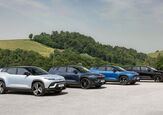
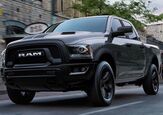
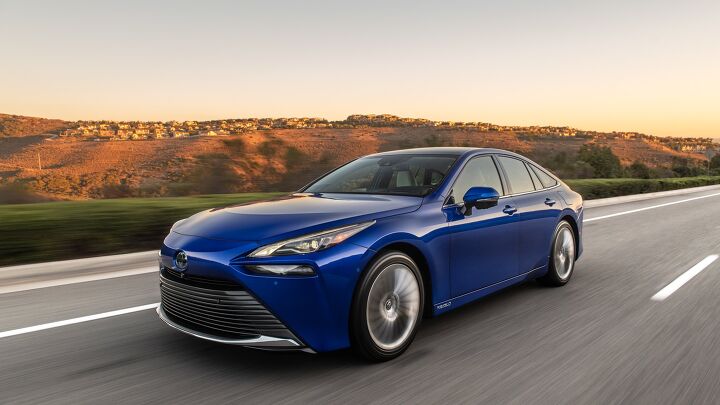
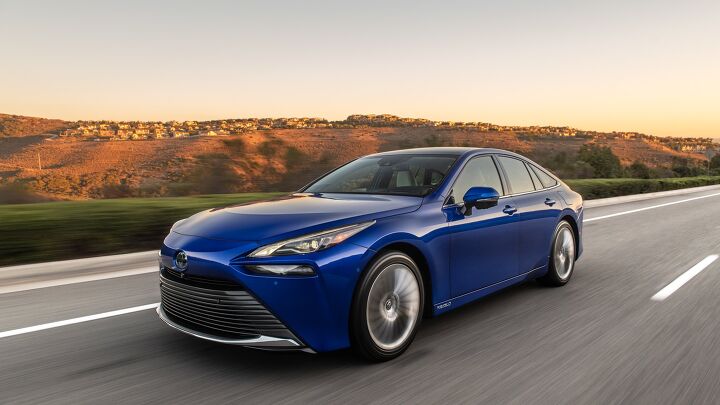
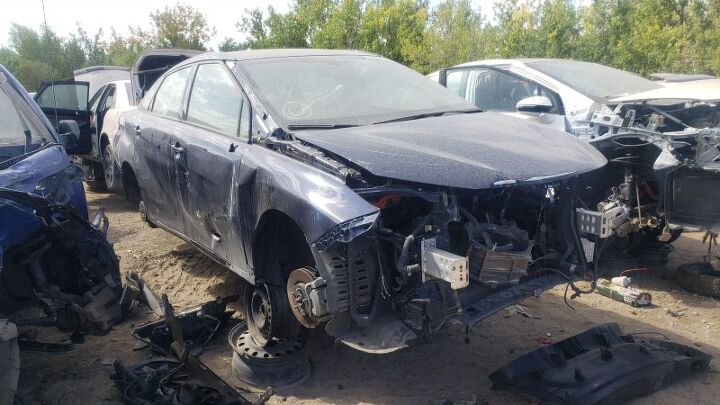
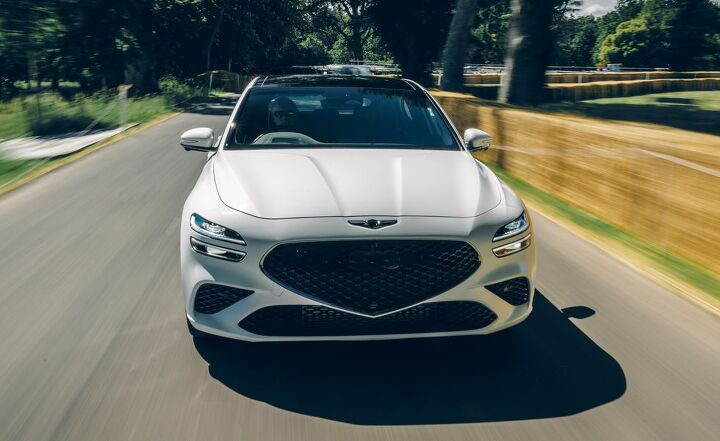
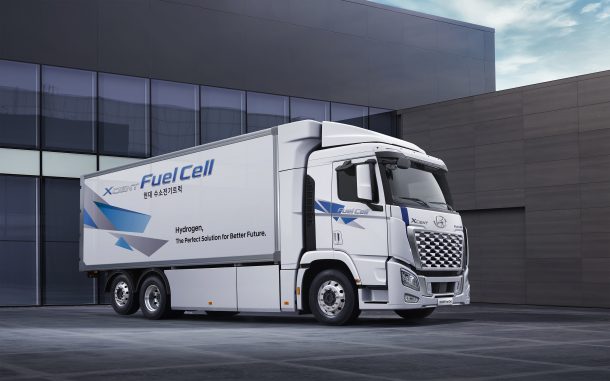
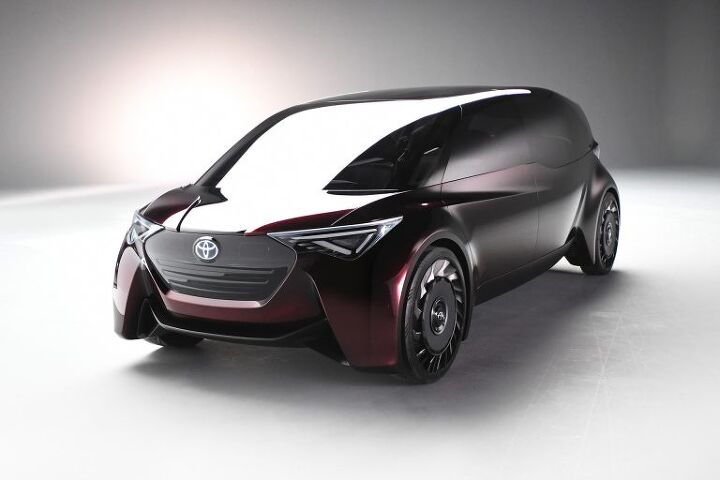
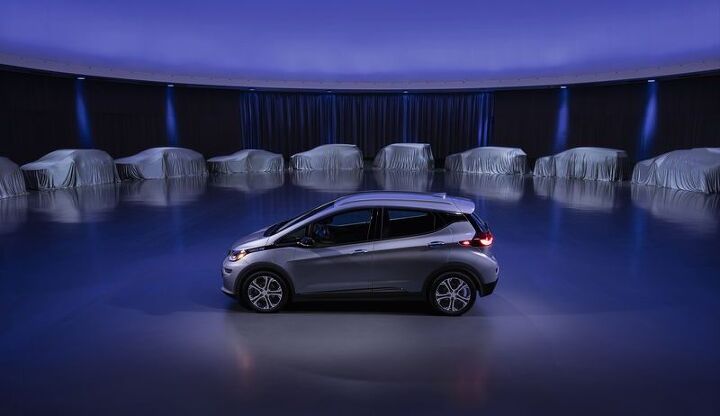
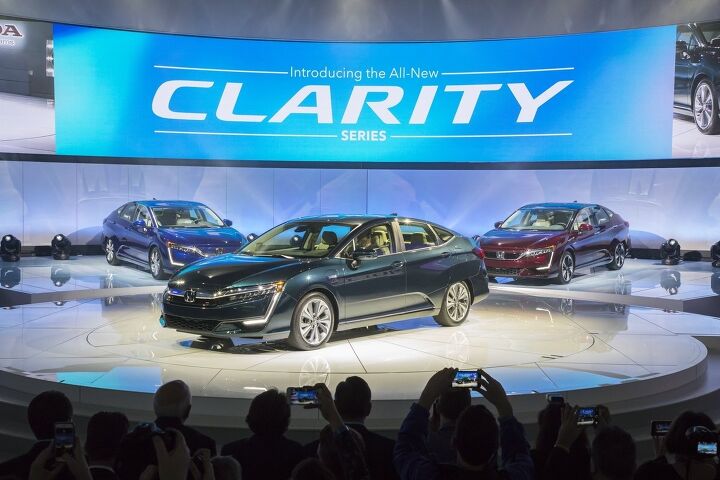
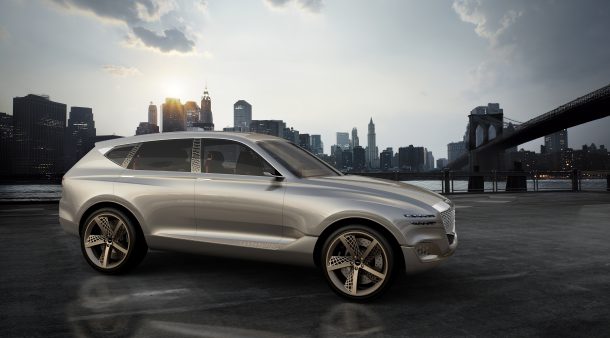
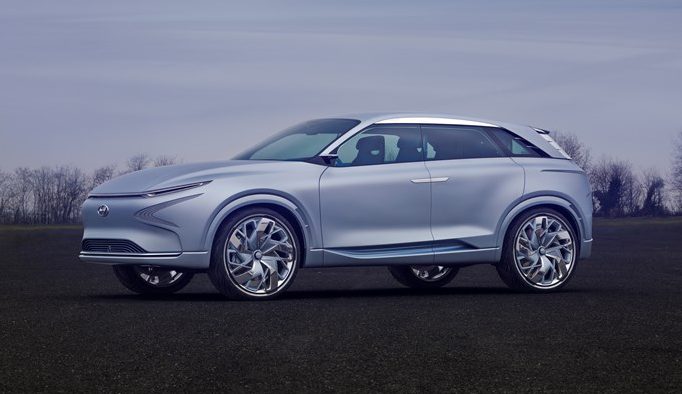


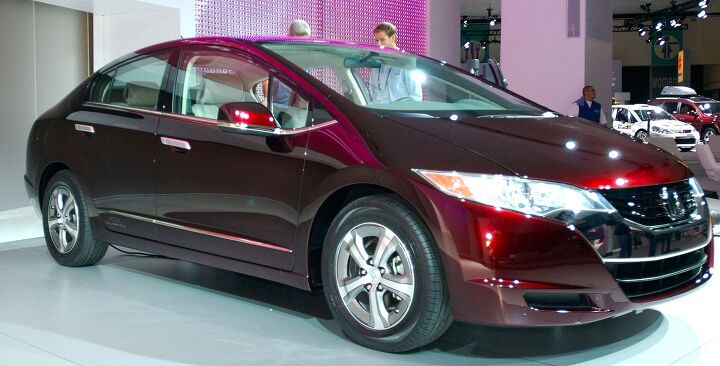

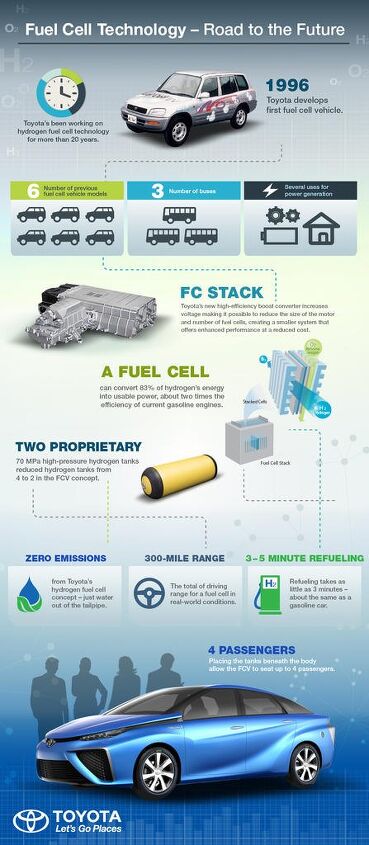












Recent Comments